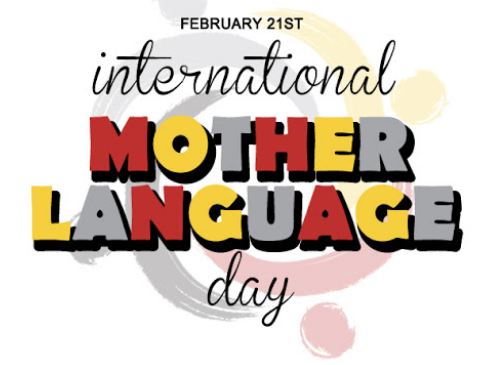
I’m still not quite sure why the world recognizes mother language as the first language we acquire from birth. I believe my father also had contributed a lot to my mother language. In fact, he tape-recorded my early babbles. I remember that I could only laugh at my indistinguishable mother tongue at aged one. My father interpreted the meaning for me which I forget now. But he certainly had a better comprehension than my mother of that old tape in which the baby me sounded like an infant alien from outer space.
As my interest in my mother language grows, I now know that there is difference between Cantonese spoken in Xiguan—a historical district in Guangzhou, China—and Cantonese spoken in Hong Kong. Strictly speaking, my mother language is the Cantonese that is spoken outside Xiguan. Guangzhou dialect of Cantonese once took Xiguan as its standard. Too bad, I’ve discovered this nuance long after my mother had passed on. I can’t verify with her the origin of our mother language sound by sound and tone by tone.
The United Nations celebrated the 20th anniversary of International Mother Language Day on Feb 21 this year. According to the UN stats, at least 43% of the estimated 6,000 languages spoken in the world are endangered. Less than 100 are used in the digital world. I’ve made a remark about website language in an earlier piece. Click here for 2020: Saving the Endangered Species and Languages.
Although the UN celebration is symbolic, linguistic diversity and multilingualism can’t be more eloquently represented than in this year’s Oscar Awards whose theme is inclusiveness. I’m particularly moved by Best Actor Joaquin Phoenix’s acceptance speech.
The political arena in America and abroad seems to have been in drought for this kind of speech filled with understanding, compassion, altruisticness, self-awareness, empathy, inclusiveness and above all else, peace and love.
We don’t need to understand Korean to watch the winning Best Picture Parasite; we don’t need to disparage others who don’t speak English, Chinese, German, French, Spanish, Arabic and any other major language in the world; we don’t need to disguise our mother languages in public just to prove to others that we are educated and part of the mainstream.
Mother languages bring us a myriad of musical sounds. We are entitled to our cultural distinction as we are to our own opinions. Multilingualism is tens of thousands of times more colorful than monolingualism. A zebra would not be a zebra without the black and white stripes. Do you know zebra literally means “spotted horse” in Mandarin Chinese? I often think of this analogy when I compare Mandarin with Cantonese, or in any situation that I have to favor the dominant language willy-nilly. A zebra without “spots” is just a horse; a nation without linguistic diversity is dull and selfish.
The Chinese media and local government often boast about Guangzhou as a city of inclusiveness. Because of inclusiveness, bāo róng in Mandarin Chinese, Guangzhou is one of the favorite destinations for non-Cantonese speakers to settle in as their new homes. Because of inclusiveness, non-Cantonese speaking new immigrants embrace their own dialects as well as Mandarin Chinese, which is mandatory in China. Appointed officials in Guangzhou do not bother to learn local Ningnan culture and Cantonese to assimilate. On the contrary, a coercive measure to use Standard Mandarin in public is enforced. Thus, the number of Cantonese speakers in Guangzhou has drastically dwindled in the past fifteen years.
Unlike the elistic Beijingers who blame migrant workers for urban overcrowding and poor sanitation, Cantonese people are inclusive to their compatriots across the country. However, the government has taken advantage of Cantonese natives’ good inclusiveness to enlarge the influence of Mandarin at the cost of the local language.
When we believe our language is better than others, our worldview is doomed to be limited and self-centered. I see there are many languages spoken in the United States. And yet, some native born Americans who don’t grow up in a bilingual setting are prone to have a limited worldview. Speaking English is our blessing to communicate and exchange ideas about our differences. And yet, speaking only English is not enough to understand others.
I enjoy listening to the Spanish-accented English from Sofía Vergara, the Austrian-accented English from former Governor Arnold Schwarzenegger, and the acceptance speech in Korean made by Best Director awardee Bong Joon-ho of Parasite. February marks Black History Month in America. I’m neither black nor white, but I enjoy hearing the African-American vernacular English—a mother language to many African Americans. If only we could speak in comfort with our mother languages and listen openly to many other different sounds of languages. We can make our linguistic world vibrantly colorful. I’d like to end with this video by Tapestry CEO Jide Zeitlin on inclusiveness and diversity.
